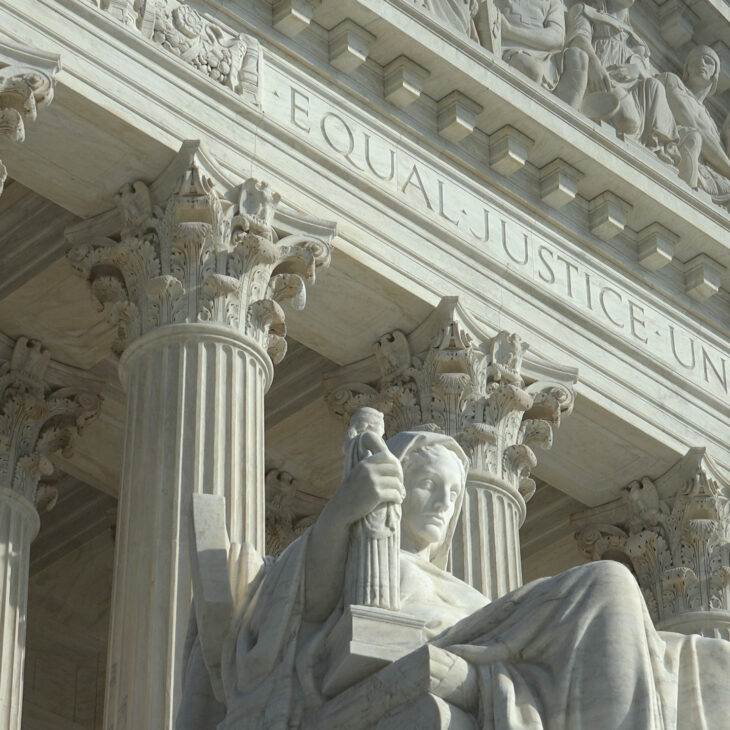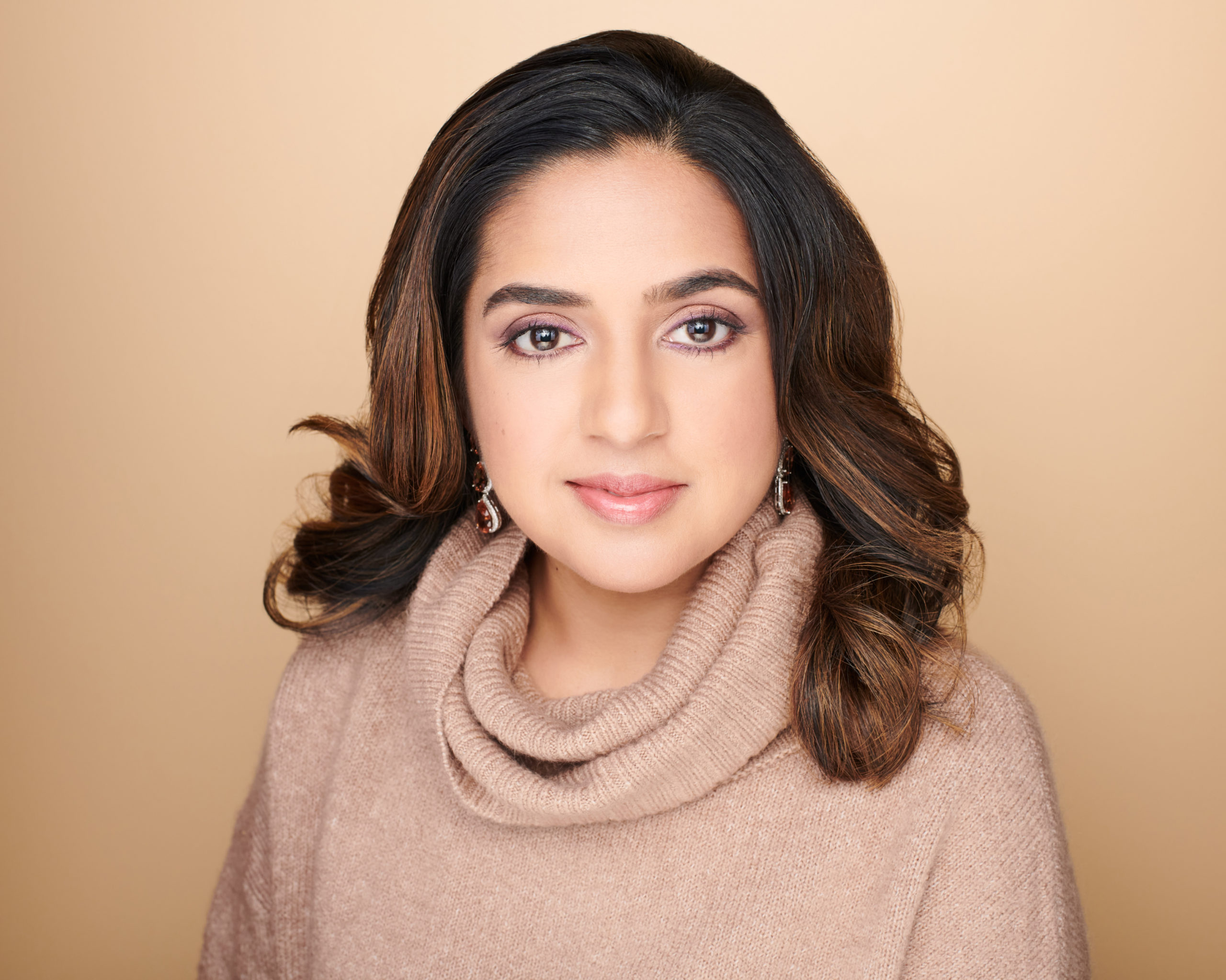As the Supreme Court Walks the Church/State Divide, Minority Religions Matter
August 2, 2022

Earlier this summer, the U.S. Supreme Court released its opinion in Carson v. Makin, a case involving a program in the state of Maine. While a Christian school was at the center of the case, both the majority and the dissent raise important points for all religious Americans.
Many rural communities in Maine do not have public secondary schools. The state requires these communities to arrange for their students’ public education at public schools elsewhere or by paying tuition (with Maine’s assistance) at a private school of the parents’ choosing. All private schools are eligible — including schools outside Maine and even abroad — except for religious schools. In the case, Maine argued that its policy was justified because using state funds to pay for attendance at a religious school would be a violation of the First Amendment’s establishment clause.
The parties in the case asked the court to resolve a question left open last year. The court ruled in Espinoza v. Montana Department of Revenue that states cannot bar religious schools, based on their religious affiliation, from participating in programs that provide scholarships to private school students.
It did not address whether states could bar religious schools’ participation based on their conduct, such as the religious content of the curriculum. In the Carson case, the parents challenging Maine’s law argued: “Such a state of affairs — in which a state cannot deny a benefit to a student because she wishes to attend a school that is religious but can deny it because the school does religious things — is unstable and untenable.”
In its opinion, the court agreed emphatically. It held that both status-based and use-based discrimination violates the free exercise clause of the U.S. Constitution and that any attempt at distinguishing the two is inherently flawed. In the court’s words: “use-based discrimination is [no] less offensive to the Free Exercise Clause … Any attempt to give effect to such a distinction” would require government bodies to scrutinize a religious school’s mission and curriculum, impermissibly involving the government in religious matters.
Justice Breyer had a different take. In his dissenting opinion, which Justice Kagan joined in full and Justice Sotomayor joined in part, Breyer argues that it’s not untenable to draw a line between a school’s religious status and its conduct. A school can be religiously affiliated, he notes, without necessarily promoting its religious beliefs to students. States should be able to restrict funding to schools that do the latter.
Breyer’s primary concern is the possibility of religious and other social conflict. State governments understand their local circumstances best, he says, and they should have some flexibility to determine where to draw the line between church and state. The majority’s opinion, Breyer worries, takes that flexibility away from states, opening the possibility that :
“Members of minority religions, with too few adherents to establish schools, may see injustice in the fact that only those belonging to more popular religions can use state money for religious education. Taxpayers may be upset at having to finance the propagation of religious beliefs that they do not share and with which they disagree. And parents in school districts that have a public secondary school may feel indignant that only some families in the State—those families in the more rural districts without public schools—have the opportunity to give their children a Maine-funded religious education.”
While the case involves Christian schools in Maine, the decision applies to all religious schools across the country. Diverse religious institutions in the U.S. are more likely now to be eligible for funding that was previously denied to them based on their religious status or activities. For minority religious communities that are struggling to expand resources for their adherents, this type of financial support can be critical.
Carson also helps states navigate the establishment clause more carefully; too often, confusion about what the clause prohibits and doesn’t prohibit leads states to overbroadly restrict religious entities’ access to state benefits. Carson helps level the playing field and, by doing so, protect the important role of religion and religious actors in American society.
On the other hand, both Justices Breyer and Sotomayor (in her separate dissent) point out a different side of Carson. The court’s decision requires state taxpayers to fund religious schools that teach lessons many Americans would find discriminatory against religious and other minorities (sexual minorities in particular). About this, Sotomayor says Carson might “protect against discrimination of one kind” but, in effect, it “requires Maine to fund what many of its citizens believe to be discrimination of other kinds.”
The implications of the case are likely complex, and the full complexity is yet to be seen. But one thing is clear: how America’s diverse religious communities utilize the increased state support for their institutions will be critical to Carson’s long-term outcome.
Share
Related Articles
American Civic Life
American Civic Life
Streaming Online has been a Boon for Churches, a Godsend for Isolated
American Civic Life
Why the Supreme Court’s Football Decision is a Game-Changer on School Prayer

Asma Uddin
Asma Uddin is the author of “When Islam Is Not a Religion: Inside America’s Fight for Religious Freedom,” published in 2019, and “The Politics of Vulnerability: How to Heal Muslim-Christian Relations in a Post-Christian America,” published in 2021. She is Visiting Assistant Professor of Law at Catholic University of America. Ms. Uddin is also a Fellow with the Aspen Institute’s Religion & Society program, where she is leading a project on Muslim-Christian polarization in the United States. She was formerly legal counsel at the Becket Fund for Religious Liberty and has held academic fellowships at Georgetown and UCLA. Ms. Uddin is also an expert advisor on religious freedom to the Organization for Security and Cooperation in Europe, and a term-member of the Council on Foreign Relations. She is a graduate of the University of Chicago Law School, where she was a member of the University of Chicago Law Review.



